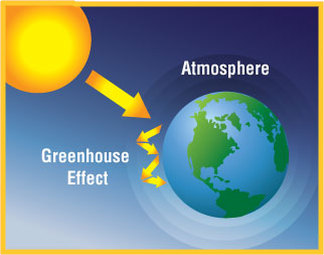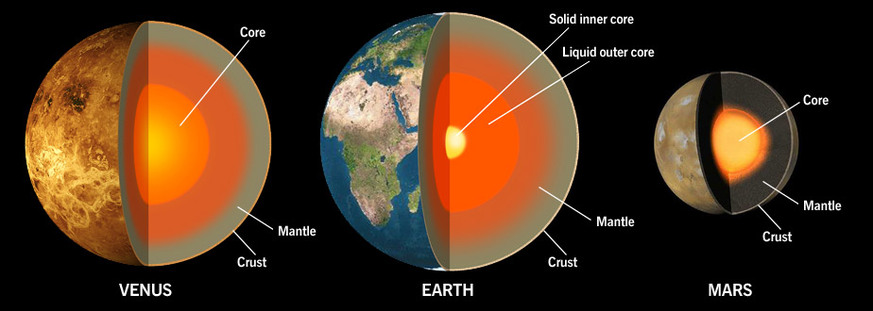Definition of the Greenhouse Effect

The planet's surfaces receive heat from the sun. Planet's that are warm then release heat of there own. The "greenhouse effect" is when this heat is trapped and then absorbed by gases and vapor in the atmosphere. As a result the atmosphere is heated.
Earths Greenhouse Effect Compared to Mars and Venus
- Compared to Earth, Mars greenhouse effect is almost insignificant. Mars has a thin atmosphere, this thin layer does not trap any heat and is one of the reasons why Mars is so cold. Earth atmosphere is thicker which allows the greenhouse effect to function properly. Without it Earth would be very cold just like the Climate on Mars.
- Compared to Earth, Venus has a very present greenhouse effect. Its effect is so strong because Venus' has a thick atmosphere which prevents heat from escaping. Venus' atmosphere consists mostly of carbon dioxide so the surface temperature is extremely high. The carbon dioxide is why heat doesn't have the ability to escape. Venus is 92 times more dense than Earth’s atmosphere at the surface.
Earths Atmosphere Compared to Mars and Venus
The atmosphere of Earth is very thin and is made up of gases. The four main gases Earth is composed of is 78% nitrogen, 21% oxygen, 0.9% argon, 0.03% carbon dioxide. Earth doesn't have one constant atmospheric pressure. The standard atmospheric pressure on Earth is 1000 millibars (mb), however pressures can range anywhere from 875 mb to 1080mb.
- Compared to Earth, Venus has a very heavy atmosphere so the planet's atmospheric pressure is very high. This would make it very difficult to see things far away if you were on Venus due to the heavy carbon dioxide in its atmosphere. Venus is made up of 96% carbon dioxide and 3.5% nitrogen.
- Compared to Earth, Mars atmospheric pressure is very low. So low in fact that liquid water can not exist on its surface. Its similar to Venus in that Mars is made up of mostly carbon dioxide (95%).

